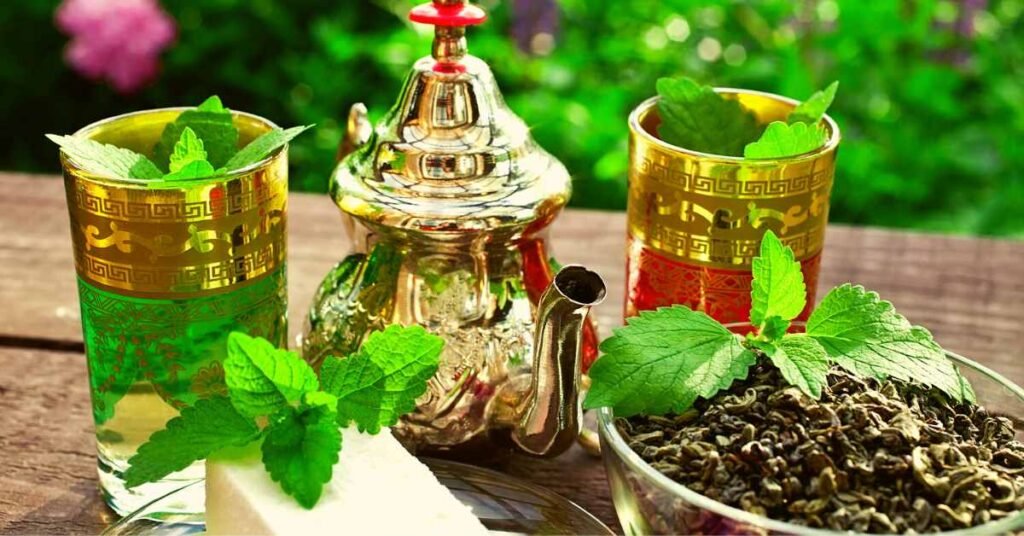Tea, a beverage cherished for centuries, has transcended its role as a mere drink and found its way into the realm of natural remedies. One intriguing application of tea’s therapeutic properties is its effectiveness in treating ingrown hairs.
Ingrown hairs, a common skin concern for many, can be not only unsightly but also painful.
In this article, we delve into the world of tea and explore how its diverse properties make it an excellent option for ingrown hair treatment.
Understanding Ingrown Hairs

Before we explore the benefits of tea in combating ingrown hairs, it’s essential to understand what they are.
Ingrown hairs occur when a hair follicle becomes trapped beneath the skin’s surface, leading to inflammation, redness, and sometimes infection.
Common causes include improper shaving techniques, tight clothing, and coarse or curly hair.
The Healing Power of Tea
Tea, derived from the Camellia sinensis plant, contains a myriad of bioactive compounds that contribute to its therapeutic properties.
From antioxidant-rich polyphenols to anti-inflammatory catechins, tea has proven itself as more than just a beverage.
Let’s explore how different types of tea can aid in the treatment of ingrown hairs.
Green Tea:
Green tea, celebrated for its high concentration of antioxidants, has anti-inflammatory and antibacterial properties that can be harnessed for ingrown hair treatment.
Epigallocatechin gallate (EGCG), a polyphenol found in green tea, helps reduce inflammation and soothe irritated skin.
To use green tea for ingrown hair treatment, brew a strong cup and allow it to cool. Using a cotton ball, apply the cooled green tea to the affected area.
The antioxidants in green tea can help alleviate inflammation and promote healing.
Chamomile Tea:

Chamomile tea, derived from the dried flowers of the chamomile plant, has been a staple in traditional medicine for its calming and anti-inflammatory properties.
When applied topically, chamomile can help soothe irritated skin and reduce redness associated with ingrown hairs.
Prepare a cup of chamomile tea, let it cool, and use a cotton ball to apply it to the affected area.
Alternatively, you can create a chamomile tea compress by soaking a clean cloth in brewed chamomile tea and placing it on the affected area for 15-20 minutes.
Black Tea:
Black tea, known for its robust flavor and higher caffeine content, can also be beneficial in treating ingrown hairs.
The tannins in black tea possess astringent properties that can help reduce inflammation and redness.
Brew a strong cup of black tea, allow it to cool, and apply it to the affected area using a cotton ball. The tannins in black tea can help tighten the skin and reduce the risk of infection.
White Tea:
White tea, the least processed among all tea types, retains a higher concentration of antioxidants. It is gentle on the skin and can be an excellent option for those with sensitive skin experiencing ingrown hairs.
Brew a cup of white tea, let it cool, and use it as a topical solution for affected areas. The antioxidants in white tea can aid in reducing inflammation and promoting overall skin health.
Peppermint Tea:

Peppermint tea, renowned for its refreshing flavor, contains menthol, which provides a cooling sensation. This can be particularly soothing for irritated skin caused by ingrown hairs.
Brew a cup of peppermint tea and allow it to cool. Apply the cooled tea to the affected area using a cotton ball. The menthol in peppermint can help alleviate discomfort and reduce inflammation.
Final Word
Tea, with its rich history and diverse array of health benefits, emerges as a natural and accessible solution for ingrown hair treatment.
Whether it’s the antioxidant-rich green tea, the soothing chamomile, the astringent black tea, the gentle white tea, or the refreshing peppermint tea, each type offers unique properties that can contribute to the healing process.
As we continue to explore the intersection of traditional remedies and modern skincare, tea stands out as a therapeutic elixir for those seeking a natural approach to address ingrown hairs and promote overall skin health.
So, the next time you enjoy a cup of tea, remember that its benefits extend beyond the teacup, offering a soothing remedy for one of the common skin concerns many of us face.
MEDICAL DISCLAIMER
Itsnevernotteatime.com cannot and does not contain medical/health advice. The medical/health information is provided for general and educational purposes only and is not a substitute for professional advice.




